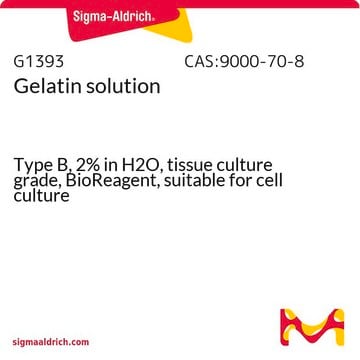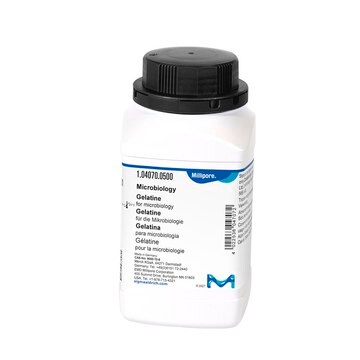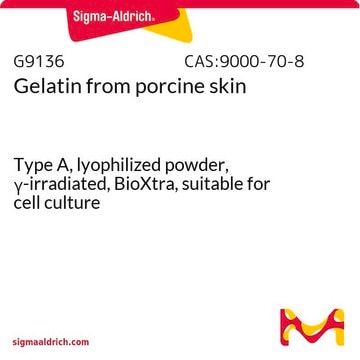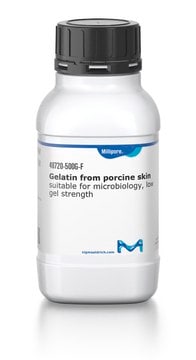G9382
Gelatin from bovine skin
gel strength ~225 g Bloom, Type B
Synonym(s):
Bovine gelatin
About This Item
Recommended Products
biological source
bovine skin
type
Type B
Assay
≥95% protein basis (biuret)
form
powder
technique(s)
ELISA: suitable
cell culture | mammalian: suitable
immunocytochemistry: suitable
western blot: suitable
solubility
H2O: soluble 50 mg/mL
Looking for similar products? Visit Product Comparison Guide
Components
Caution
Preparation Note
Storage Class Code
11 - Combustible Solids
WGK
nwg
Flash Point(F)
Not applicable
Flash Point(C)
Not applicable
Personal Protective Equipment
Certificates of Analysis (COA)
Search for Certificates of Analysis (COA) by entering the products Lot/Batch Number. Lot and Batch Numbers can be found on a product’s label following the words ‘Lot’ or ‘Batch’.
Already Own This Product?
Find documentation for the products that you have recently purchased in the Document Library.
Customers Also Viewed
Our team of scientists has experience in all areas of research including Life Science, Material Science, Chemical Synthesis, Chromatography, Analytical and many others.
Contact Technical Service















